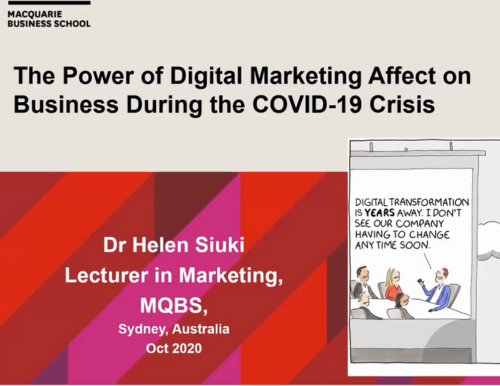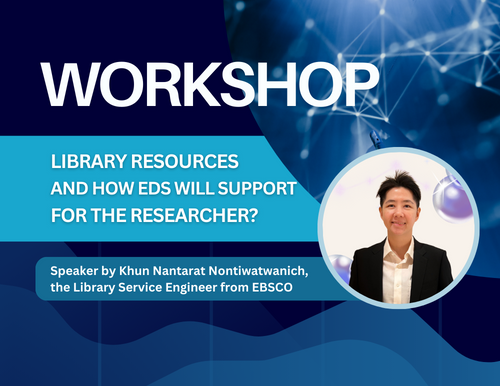The EBSCO database involves searching and accessing high-quality academic articles and research. The steps include targeted searching, reading, downloading, and saving desired articles in the system. Filters and advanced search functions help narrow down results to better match specific needs.
การทำคลิปอย่างไรไม่ให้โดน Skip เป็นการสร้างสรรค์งานจากไอเดียตนเอง เพื่อต่อยอดในการทำงานด้านต่าง ๆ และองค์ประกอบในการทำคลิปให้น่าสนใจ โดย คุณนรศักดิ์ โตงาม
The COVID-19 pandemic significantly impacted businesses worldwide, and digital marketing played a crucial role in helping companies adapt and survive during the crisis, and some key effects of digital marketing on businesses during the COVID-19 pandemic By Siuki, Helen
Lao economy, Lao job market & labor law, AEC and labor mobility, demand for talents, get yourself ready and about 108JOB By Keovisouk Dalasane
Lao economy, Lao job market & labor law, AEC and labor mobility, demand for talents, get yourself ready and about 108JOB By Keovisouk Dalasane
Lao economy, Lao job market & labor law, AEC and labor mobility, demand for talents, get yourself ready and about 108JOB By Keovisouk Dalasane
การบรรยายเกี่ยวกับการวางแผน Influencer Campaign, KOL Planning Workshop, Influencer's Tiers, Consumer journey step,
About Influencer Department โดยคุณพัชรนันท์ ด่านชัย เมื่อวันที่ 20 มีนาคม 2567
This workshop covers advanced searching and the more sophisticated of databases in the EBSCOhost platform. Library Resources, What is EDS and how it works?, Techniques in “Feature & Setting”, How EDS support the researcher. By Nantarat Nontiwatwanich on January 20, 2024
Brexit has significant political, economic, and social implications for both the UK and the EU, as it involves the renegotiation of various agreements, such as trade, immigration, and security. By Prof. Dr. Holger Paschedag from Aschaffenburg University of Applied Sciences (UAS)
การบรรยายแบบออนไลน์ เรื่อง Data Analytics Trends
โดย Khun Attapon Paknoi, Entrepreneurship and Innovation, Specialist and Researcher, University of London
เมื่อวันที่ 3 มีนาคม 2564
เป็นส่วนหนึ่งของวิชา GI282 Disruptive Innovation ปีการศึกษา 2563







